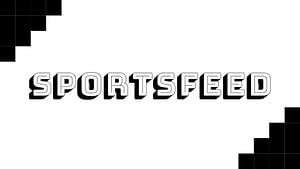Premier League’s Semi-Automated VAR Offside Technology: A Game-Changer in the Making?
In the ever-evolving world of football, the Premier League is on the brink of a technological revolution. The league has announced “significant progress” in testing semi-automated VAR offside technology (SAOT) over recent weeks, with plans to introduce this cutting-edge system during the current season. This announcement comes almost a year after clubs unanimously voted to adopt the technology, which promises to reduce the time taken for an offside check by an average of 31 seconds.
Initially, the system was not ready at the start of the season, with expectations set for its introduction “after one of the Autumn international breaks.” However, as the calendar flipped into 2025, doubts loomed over whether SAOT would make its debut in the 2024-25 campaign. Despite extensive testing and analysis conducted throughout last season, the Premier League remains cautious, ensuring the technology is fully reliable before going live.
Tony Scholes, the Premier League’s chief football officer, shared insights on Tuesday, stating, “We are still testing it, but we are making significant progress. We’re in a different place to when I spoke to managers just over Christmas, we’ve made a lot of progress in this area.” Scholes expressed optimism about introducing the technology this season, emphasizing, “We are not going to introduce it if we’ve got any doubts at all with regards to its operation.”
SAOT aims to eliminate the manual element of placing lines onto players and pitch level, making the process quicker and more accurate. It also offers a superior graphical visualization of offside decisions compared to the current method of displaying lines on the broadcast camera. While FIFA and UEFA have implemented an enhanced system in the World Cup and UEFA Champions League, featuring a chip inside the ball for better detection, the Premier League has opted for a different approach. Adidas owns the patent for the chip system, and none of the major European leagues use the company as a ball supplier.
Serie A was the first European domestic league to switch to SAOT, introducing it in January 2023 after a high-profile VAR error led to a stoppage-time winning goal for Juventus being incorrectly disallowed. Following suit, LaLiga adopted SAOT at the start of this season, though its accuracy has been questioned, notably when Robert Lewandowski had a goal disallowed for Barcelona against Real Sociedad.
Some have questioned why the Premier League is developing its own SAOT when other leagues have already implemented it. Scholes addressed these concerns, stating, “The system that we’ve adopted, we believe it to be the best system. We believe it to be the most accurate and the most futureproof system as well and that’s why we went with that.” He acknowledged initial doubts but highlighted the significant progress made over the last four to six weeks.
Scholes also defended the timing of the switch from legacy VAR offside technology to SAOT, even if it occurs mid-season. “It’s a very fair question and we’ve sort of questioned ourselves about this,” Scholes admitted. “But fundamentally, the operation of semi-automated offside technology does not change the integrity of the offside law and doesn’t change the integrity of the decision making. What it does is makes the process more efficient.”
He added, “Clearly if we’re not confident until the last two or three match rounds, I think you then arrive at a pragmatic place where you just say it wouldn’t make sense to introduce it now. But if we’re able to introduce it in advance of that, then it’s something that we are actively considering.”
Despite several notable errors, Scholes insisted that refereeing standards have improved this season. The Premier League’s Key Match Incidents (KMI) Panel reported a decrease in errors from 20 last season to 13 in the 2024-25 campaign. The Elite Referee Development Plan, aimed at fast-tracking promising referees, is already yielding results.
Scholes explained, “These are referees whose potential has been identified and plucked out from whatever level they’re operating in the game. We’re investing in them to shorten the time it takes them to get to the league. Sixty-five games have been officiated by officials in the development group already this season at a level higher than they operate.”
He highlighted the success stories of referees like Sam Barrott and Lewis Smith, who have rapidly advanced through the ranks. Scholes also revealed plans to introduce referees announcing VAR decisions to the crowd, a feature tested in the Carabao Cup semifinals, at the start of next season. The Bundesliga has already trialed this approach.
Scholes emphasized the importance of enhancing the fan experience, stating, “We want fans inside the stadium to have at least an equal experience as to those at home when it comes to VAR.” The Premier League is committed to achieving full visibility and audio of the conversation between the referee and the VAR, continuing to lobby for change with the International Football Association Board (IFAB), which controls VAR protocol.
All 13 VAR Errors in the Premier League This Season
- Incorrect Interventions (4)
- AFC Bournemouth 1-1 Newcastle United, Aug. 25
Dango Ouattara goal disallowed for handball (’90+2) - West Ham United 2-1 Manchester United, Oct. 27
Penalty awarded for a foul by Matthijs de Ligt on Danny Ings (’90+2) - Everton 0-0 Brentford, Nov. 23
Christian Nørgaard sent off for serious foul play (’39) - Nottingham Forest 3-2 Southampton, Jan. 19
No Chris Wood offside offence on goal (’64)
- Missed Interventions (9)
- Man United 0-3 Tottenham Hotspur, Sept. 29
Serious foul play, red card to Bruno Fernandes (’41) - Aston Villa 2-2 Crystal Palace, Nov. 23
DOGSO, red card not given to Ian Maatsen (’65) - Everton 4-0 Wolverhampton Wanderers, Dec. 4
Abdoulaye Doucouré offside offence on goal (’72) - Nottingham Forest 2-1 Aston Villa, Dec. 14
Penalty not awarded. Foul by Elliot Anderson (’34)* - West Ham 1-1 Brighton & Hove Albion, Dec. 21
Serious foul play, red card not given to Pervis Estupiñán (’84) - Brighton 0-0 Brentford, Dec. 27
Violent conduct, red card not given to João Pedro (’75) - West Ham 0-5 Liverpool, Dec. 29
Penalty not awarded. Foul by Alexis Mac Allister (’35) - Ipswich Town 0-2 Brighton, Jan. 19
Penalty not awarded. Foul by Wes Burns (’11) - Wolves 0-1 Arsenal, Jan. 25
Serious foul play, red card to Myles Lewis-Skelly (’43)
*Panel stated the penalty may not have been awarded due to a prior foul but this should have been decided on review.
Originally Written by: Dale Johnson





















